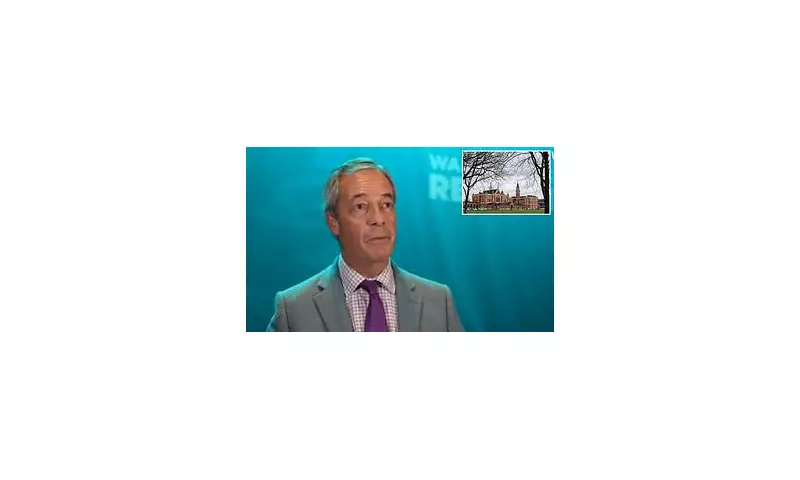
Reform UK leader Nigel Farage has directly addressed allegations concerning his behaviour as a teenage pupil at an elite private school in the 1970s, firmly denying he engaged in racist actions 'with intent'. The political figure responded to a newspaper investigation during a broadcast interview, confronting claims that have sparked significant controversy.
Confronting the Allegations
The Guardian published a report based on accounts from more than a dozen of Mr Farage's school contemporaries, who alleged incidents of deeply offensive behaviour throughout his teenage years at Dulwich College, a prestigious £64,000-a-year south London public school. A spokesman for the Reform leader had previously denied the claims, but on Monday, Mr Farage engaged with them personally.
When broadcasters questioned him about the racial abuse allegations, the 61-year-old politician replied: 'This is 49 years ago, by the way. Forty-nine years ago.' He asked rhetorically: 'Have I ever tried to take it out on any individual on the basis of where they're from? No.'
Farage's Qualified Denials
Pressed to categorically rule out that he had engaged in racial abuse during his school years, Mr Farage offered a nuanced response. 'I would never, ever do it in a hurtful or insulting way,' he stated. He further elaborated on the challenges of memory, noting: 'I had just entered my teens. Can I remember everything that happened at school? No, I can't.'
When asked once more if he had engaged in racial abuse at the school, the Reform UK leader gave a critical qualification: 'Not with intent.' He added context to this statement, explaining: 'No, I have never directly, really tried to go and hurt anybody.' Mr Farage acknowledged that his words from five decades ago might be interpreted differently today, stating: 'Have I said things 50 years ago that you could interpret as being banter in a playground, that you can interpret in the modern light of day in some sort of way? Yes.'
Political Fallout and Wider Scrutiny
The interview in Llandudno also covered questions about Mr Farage's response to the sentencing of Nathan Gill, the former leader of Reform in Wales, who received ten and a half years for bribery over pro-Russian speeches. When asked whether he planned to probe all his MPs about foreign influence, Mr Farage responded: 'We are not a police force.' He instead advocated for a broader investigation into the influence of other countries on British politics.
The reaction from political figures was swift and critical. Labour peer Lord Mike Katz condemned Mr Farage's remarks, stating: 'Just when you thought Nigel Farage couldn't sink any lower, he is trying to say abhorrent racist comments, including vile antisemitic insults, doesn't matter.' He added: 'He seems to think that you can racially abuse people without it being hurtful and insulting. Let's be crystal clear: you can't.'
Further scrutiny emerged regarding Mr Farage's appearance on the same stage as Laura Anne Jones, Reform's only Senedd member, who is currently suspended from the Senedd for making a racial slur. Liberal Democrat president-elect Josh Babarinde commented on Farage's responses, saying: 'The Reform leader's refusal to deny that he's said these racist remarks is unbecoming from someone who wants to be our next prime minister.' He concluded: 'It looks like the mask has slipped and fact-of-the-matter-Farage is turning into no-answers-Nigel.'





